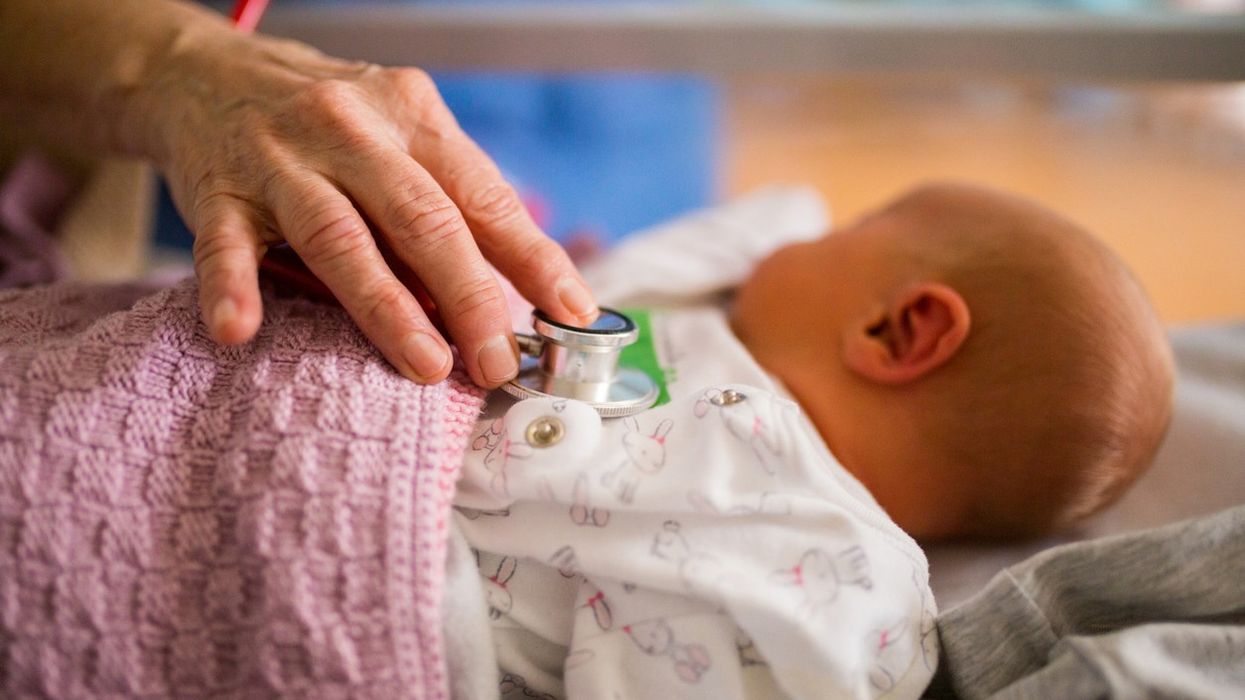The NHS Race and Health Observatory has been calling for the development of a central data repository to map improvements around reducing poor outcomes in maternal and neonatal healthcare for Black, Asian and ethnic minority women.
And now, a new research carried out by the independent health organisation, the University of Liverpool and University of Warwick, has found that few maternal policies developed by hospital trusts and other providers focus on addressing ethnic health inequalities across maternity care.
The lack of a national and central focus; diversity of research; and national commitment is outlined in the new report - 'Mapping existing policy interventions to tackle ethnic heath inequalities in maternal and neonatal health in England: A systematic scoping review with stakeholder engagement', published on Thursday (8).
Alongside scores of evidence, the researchers have studied past policies and interventions designed to broadly improve maternal and neonatal health.
As part of a nine-month literature review, 19 key interventions aimed broadly at tackling ethnic inequalities, published between 1981-2022, were included for review with data collection from 1977 to 2020.
The limited number of published reports means ad-hoc examples of good practice may not have been published and, where available, are not being shared across the entire maternal and neonatal health system.
Within the existing policies found, interventions were variable, broad, sporadic, not fully implemented or designed for evaluation, leading to the risk of duplication of multiple efforts across the country.
Most of the interventions reviewed did not include a specific focus on race, ethnicity or action plans to improve the disparate outcomes for Black, Asian and ethnic minority women, pregnant people and babies in maternity and neonatal care.
Besides, no evaluation of interventions that aim at tackling institutional or interpersonal racism, such as tackling ethnic stereotyping or supporting people with experience of discrimination in healthcare, were found.
In the UK, Black women are four times more likely to die during pregnancy or childbirth compared to their white counterparts while women from Asian backgrounds face twice the risk of maternal mortality.
Overall, poor evaluation and design were a factor for most interventions. Among a number of recommendations for health policy, practice and research teams, is a call for the development of a central repository for ongoing interventions operating on the
interactive portal on the NHS Improvement Maternity Transformation website.
The report also outlines how a number of improvements can be delivered through:
• Better research and data recording
• Ensuring the same midwife or maternal team
• First-trimester screening, with early screening for pre-eclampsia
• Vitamin D supplementation
• Support with post-natal depression for specific ethnic groups and specialist Cultural Liaison Midwives to improve trust with pregnant women
It is hoped the series of practical recommendations -- compiled by maternal experts and those with lived experience -- will lead to inconsistencies and gaps being closed.
Dr Daghni Rajasingam, consultant obstetrician and deputy chair of the NHS Race and Health Observatory’s maternal working group, said, “It is imperative that health teams, the NHS, integrated care boards and all other providers of perinatal services take stock of this report and commit to effective action to address maternal health inequalities and more research as a priority.
“There is an urgent need for programmes across England which are designed to address, track and evaluate maternal inequalities going forward.
“It is not acceptable that one of the leading causes of maternal mortality is also linked to mental illness and women from ethnic minority communities are once again disproportionately affected. Whilst we found a number of inconsistencies through
our maternal mapping research, we also want to capture what is working well and replicate that where possible.”
The review also highlights the lack of available evidence from other regions of England on the effectiveness of national interventions such as the midwifery continuity of care model.
In addition, an interactive platform for organisations to showcase their good practice interventions on tackling ethnic and racial health inequalities, including on maternal and neonatal health, is being developed by the NHS Race and Health Observatory.
Content is currently being gathered from across different parts of the country.
The principal Investigator of the study, Dr Oluwaseun Esan from the University of Liverpool, said, “We hope that highlighting the limited policy interventions designed to tackle ethnic health inequalities in maternal and neonatal health across England and identifying gaps, we can help to address them.
"A specific policy on reducing ethnic health inequalities for Black, Asian and minority ethnic women is urgently required, as well
as increased investment in research on interventions that addresses these inequalities in outcomes with health inequality impact assessments embedded from the development stage”.
Dr Habib Naqvi, director of the NHS Race and Health Observatory, said, “These findings highlight the need for a more joined up and holistic approach to tackling ethnic and racial inequalities in maternal health. Interventions must be evaluated, and their impact on marginalised groups must be considered. The review highlights the need to create systemic changes in research funding and design to ensure that any efforts to implement interventions are not wasted through lack of robust design principals, evaluation, and dissemination planning.”




